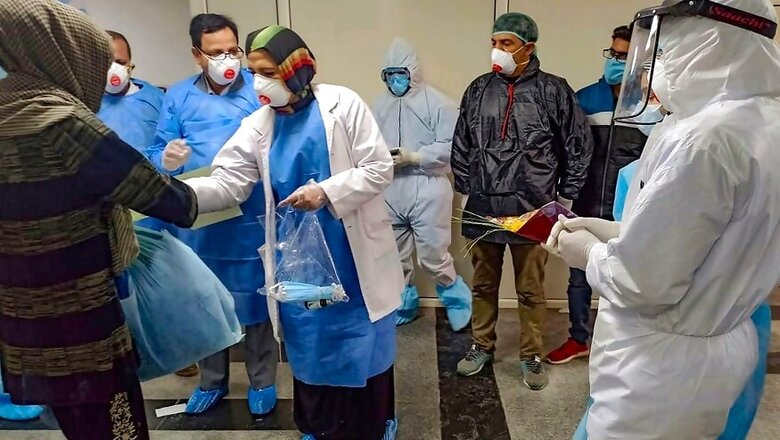
views
The Hamletian dilemma is both persistent and prevalent. A choice (either/or) has to be made in every transaction and reciprocation. A similar choice is now to be made by the executive which has been pulled up by the Supreme Court. At the heart of the matter is — what might seem to be a simplistic issue — should interest be charged on loans on which there is a moratorium? The equated monthly installments, popularly known as EMIs, have been deferred in view of the unprecedented health emergency facing the country, but the people will still have to pay the interest. Should the common man, caught between coronavirus and lockdown, be made to pay up?
A Public Interest Litigation (PIL) has questioned the motive behind the Reserve Bank of India’s (RBI) decision to charge interest rate on loans even during the three-month moratorium period declared during the Covid-19 lockdown. India’s central bank had recently extended the moratorium till August 31.
Defending itself, RBI said the exemption given by it during this great hour of crisis was only an exercise in moratorium deferment and cannot be taken to be a waiver. It argued that banks are commercial entities that intermediate between depositors and borrowers, and as a regulatory body, it is RBI’s duty to protect the interests of both. Banks, the RBI said, are run on practical commercial considerations.
The RBI response appears to be placing a premium on profitability of banks over and above public interest at a time of a grave health emergency. Just recently, the apex court had underlined that commercial considerations should not outweigh public health and interest when it pulled up Air India for its decision to assign middle seats to passengers in the Vande Bharat Mission flights. The court was reminding Air India that profitability must not override simple human concerns. Social distancing has been championed by officials at all levels to check the spread of the disease.
The present peculiar circumstances need to be evaluated based on the overlapping entitlements of several affected classes. The entire socio-economic system ought to be used for the benefits of individuals, including the depositors as they are subjects of the civil society. The monetary and banking systems governed under the RBI Act are also intended to benefit the society at large by balancing all factors. In the present pandemic scenario, individuals need to be protected and systems ought to be used for comforting them. Thus, commercial contracts like loan agreements should be examined with balance of convenience in favour of borrowers. However, institutions must be supported by the governments and some specific bailout packages for financial institutions and banks, if required, must be contemplated/offered to them. Such bailout packages may be casted on the lines of politically much debated issue of loan waiver packages to farmers and may be graded with the help of the experts.
Greed, one among the seven deadly sins, acquires monstrous proportions when it makes people oblivious to the suffering of others. It also sits at odds with civic virtue. In times of trouble like these, a good society usually pulls together. To acknowledge the moral force of the virtue argument is not to say that it must always prevail over competing considerations. The counter argument is that free markets promote general welfare. It is expected that when two people make a deal, both gain. This works at a theoretical level. In practice, however, the bargain may not appear to be so neat. The banks charging the interest rate in these unprecedented times must bear that in mind. It is also the court’s responsibility to remind the executive of not only its powers, but the duties as well.
That often repeated adage, justice must not only be done, but it must also be seen to be done. The deferment of loan payments is a welcome step but to still charge interest on it during this period may not be very citizen friendly. People, reeling under the effect of an economic downturn and uncertain future, are already dead beat. Many among them have lost their jobs and face an uncertain future. The state is known for its largesse and it is also its moral duty to ease the burden on the common man.
Another way to view this situation would be to put it through the test of reasonableness. Like in a criminal case it must be proven beyond reasonable doubt that the man is guilty. For it is infinitely better to let a guilty man walk free than to punish an innocent person. Certain asymmetries in rights are necessary and vital. The asymmetry is both required and needed in this case. After all, governments exist for its people and this is what people are seeking from it. These asymmetrical rights help to create claims for fair recognition and address serious social concerns.




















Comments
0 comment